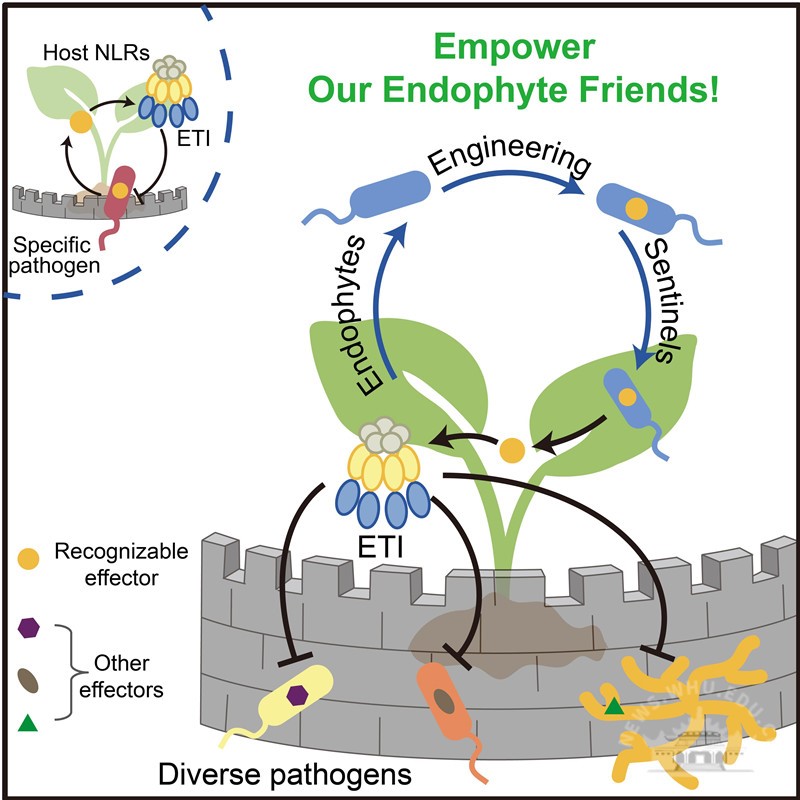
A research team led by Professor Xu Guoyong from Wuhan University's Institute for Advanced Studies has published a groundbreaking study in Cell Host & Microbe.
The paper, titled "Genetically engineered plant endophytes broaden effector-triggered immunity", introduces an innovative "Sentinels" approach to enhance plant immunity.
The research uses the intricate "Microbiota–Host–Pathogen" triad to modify plant endophytes. These engineered endophytes can detect reactive oxygen species signals produced during pathogen invasion, triggering the inducible expression of effector molecules recognizable by host NLRs (nucleotide-binding leucine-rich repeat receptors).
This design ensures that the sentinel strains activate effector expression only upon pathogen attack, triggering the plant's effector-triggered immunity (ETI) system to provide broad-spectrum resistance against various bacterial and fungal pathogens.
ETI relies on the specific recognition of pathogen effectors by plant NLR immune receptors, enhancing local immune responses and inducing systemic resistance.
The "Sentinels" approach employs the OxyR-ROS gene expression regulatory pathway to control effector expression within sentinel strains, demonstrating excellent cross-species applicability and biosafety.
The approach offers a novel way to construct broad-spectrum, durable disease resistance systems across various crops using plant endophytes as a platform. Future research will focus on optimizing colonization capabilities, signal sensitivity, and protein-delivery efficiency of the chassis strains, as well as evaluating ecological safety and expanding the strategy to more crops to verify its universality against diverse pathogen threats.
It also provides a promising solution for developing "One sensor NLR" crops, as specific NLR genes can affect crop growth.